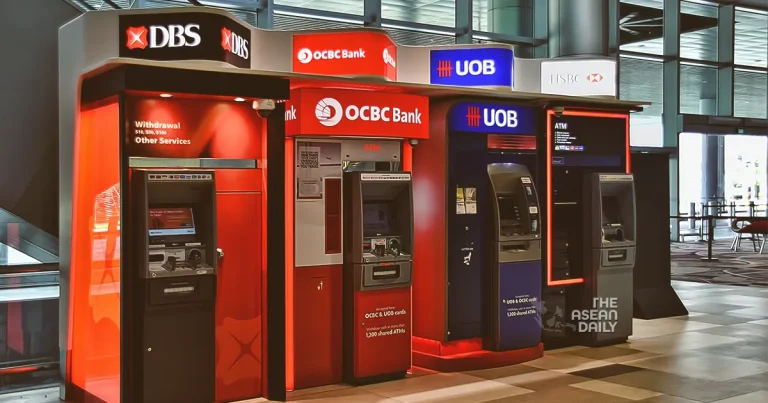6-10-2023 (SINGAPORE) In a proactive move to combat the increasing number of scam cases, Singapore’s three local banks, DBS, OCBC, and UOB, have announced plans to introduce a “money lock” feature that allows customers to safeguard a portion of their funds, making them inaccessible for digital transfers.
The concept of a “money lock” has been under consideration by the banking industry as a measure to address the rising prevalence of scams, as highlighted by Minister of State for Trade and Industry Alvin Tan during a parliamentary session last month. The feature will enable customers to allocate a specific amount in their accounts that cannot be digitally transferred without stringent authentication measures.
Minister Tan emphasized that this measure would help limit losses caused by scams, responding to an adjournment motion on the implementation of measures to protect banking customers against fraudulent activities.
DBS, in a press release on Friday (Oct 6), announced the upcoming launch of a new banking account called “digiVault.” This account will adopt a “digitally in, only physically out” approach, allowing customers to make digital fund transfers into the account but not conduct outgoing transactions electronically.
By restricting digital access to customers’ funds, the new digiVault account aims to prevent fraudsters who gain unauthorized access to customers’ phones and accounts from carrying out fraudulent digital transactions, according to DBS. The bank further stated that the funds in the digiVault account, set to be launched by the end of November, will only be accessible after customers verify their identities.
One method of identity verification involves customers visiting a bank branch and presenting proof of identity, such as an IC or passport. Additionally, DBS is exploring other verification options that will be announced next month.
Describing digiVault as akin to a virtual safe deposit box in a vault, Han Kwee Juan, DBS’s Singapore country head, stated, “The funds in the account are locked away and will give our customers peace of mind that it cannot be accessed digitally.”
UOB and OCBC have also confirmed plans to introduce similar features. OCBC will implement a “money lock” feature on its banking app by the end of November, allowing customers to ringfence a specific amount from their account balances, preventing digital transfers out of the ringfenced funds. To unlock the ringfenced funds, customers will need to perform a cross-channel authorization on a different platform, such as an OCBC ATM.
UOB, after carefully studying the concept, will roll out its own version of the “money lock” feature by November. The bank believes that this tool will effectively limit the risk exposure to online scams by ringfencing a designated portion of funds, preventing digital transfers or intrusion.
These security measures come as banks in Singapore have recently stepped up efforts to prevent scams. Several banks have implemented enhanced controls that restrict user access to their apps, aiming to mitigate the threat of malware-enabled scams.
OCBC was the first to introduce such measures in August, preventing Android users from accessing the bank’s digital services on their phones if potentially risky apps downloaded from unofficial portals were detected. Citibank and DBS followed suit with their security updates, which restrict access if risky permission settings or unverified app stores are detected on users’ phones.
The banks have assured customers that these security features do not monitor their phone activities, collect personal data, or store any private information. The focus is on detecting known malware or unauthorized apps based on behavioral characteristics, as confirmed by the Singapore Police Force.




